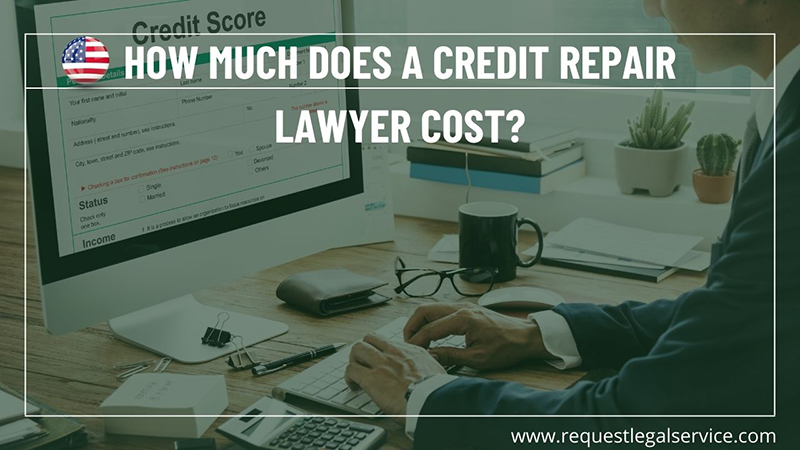
Credit repair might not have the exact name for financial services; however, it’s a federal right.
Two primary credit repair laws guarantee consumers the right to correct errors in their credit reports.
They are:
Federal Law I. Fair Credit Reporting Act (FCRA) and
Federal Law II. Credit Repair Organizations Act (CROA)
These two credit repair laws primarily lay the foundation for how credit repair works within the US.
There are laws in all 50 states that regulate the credit repair business and service suppliers.
“Federal law guarantees consumers the right to dispute data in their credit reports and to have it corrected.”
There’s also a federal law that outlines how credit repair companies will give services to consumers.
The first of the credit repair laws: Federal Law I. Fair Credit Reporting Act (FCRA)
The Fair Credit Reporting Act (FCRA) is the law that primarily created the credit repair method back in 1970.
Small personal companies started providing personal lines of credit histories in outline reports to banks beginning in the 1960s.
The reports helped banks build choices for native customers.
However, consumers found that these reports weren’t always entirely correct.
Since this affected people’s ability to qualify for loans, the central bank stepped in to manage credit reporting and create credit repair laws.
What did the FCRA put in place?
The FCRA did more than producing the credit repair method, though.
It also provided the subsequent protections for consumers:
- It limits who will read your credit report. Companies can only access your report for the following:
- Loan and credit applications
- Insurance functions
- Court cases
- Employment
- Bank closures
- You want to authorize a company to review your report in most cases. So, even after you apply for a loan, you want to offer them permission to read your report.
- It additionally limits what your credit report often mentions. This part of the law defines what data gets listed in your report and how long it remains listed.
- It guarantees the right to accuracy. This implies that credit reporting agencies (credit bureaus) should take every care possible to ensure the data is correct.
- This part of the credit repair laws creates the credit repair method that states that a consumer has the right to submit a dispute to question the accuracy of a reported item; the bureau has 30 days to verify or remove the item.
- It additionally guarantees consumers the right to understand what their report says. This part of the law also offers people a free annual credit report from each bureau.
- Finally, it creates the fraud alert method, which supplies consumers with the means to forestall fraud if their identity has been compromised.
Rights to credit repair granted by the FCRA
The Fair Credit Reporting Act outlines the method credit bureaus should follow for credit repair.
-
- Credit reporting agencies (CRAs) should settle consumer disputes free of charge.
- They should respond within thirty days; however, if there’s any follow-up, they need an extra 15 days to reply.
- The bureau should contact the investor or original supplier of the data to verify it within five business days.
- The agency has the right to terminate a dispute if they deem it spurious or irrelevant. However, they need to inform you of the termination within five business days if they do.
- They should remove the disputed item if it weren’t verified.
- The CRA should then offer you a free copy of your credit report to verify the removal of the disputed item.
- If the items are often verified, the dispute gets rejected.
- If this happens, the consumer retains the right to include a 100-word statement in their credit report. This explains your dispute with lenders reviewing your report. However, the negative data will still affect your credit score.
The second credit repair law is Federal Law II. Credit Repair Organization Act (CROA)
While the FRCA governs the credit repair method, the Credit Repair Organizations Act (CROA) regulates the credit repair industry.
The credit repair law grants you the right to authorize a certified third party to raise disputes on your behalf.
This implies that you will hire somebody to try and do the work for you, reducing the time and aggravation of repairing your credit.
Congress passed CROA in 1996 when client watchdog organizations such as the Federal Trade Commission found high rates of client abuse throughout the credit repair industry.
This part of the credit repair laws acknowledges that consumers should maintain a high score and have the right to seek help to correct their credit.
It also acknowledges that companies typically make false or deceptive claims or use abusive or predatory practices to create hardship for consumers who are already troubled.
Credit repair companies and CROA
- The law defines a credit repair company as an entity that sells services that maintain accuracy during a consumer’s credit report.
- It doesn’t include financial institutions, lenders, credit card issuers, or non-profit-making organizations like consumer credit counsel agencies.
- There are five primary business practices that CROA strictly prohibits:
- Credit repair companies create false statements concerning credit scores or how much their service can improve your score
- Altering your identity or advising you to do this to cover negative data incurred on your report.
- Creating untrue or deceptive claims concerning the services they supply.
- Conducting any practice that may represent fraud as per different federal laws.
- Charging advance fees – they should perform all services as you acquire them.
- A credit repair company should additionally offer an in-depth disclosure of what their services do and what it costs. They need to provide you with this disclosure before you sign a contract!
- They can’t punish you with additional fees if you opt to cancel
- It prohibits companies from making you sign over your rights to cancel or sue and protects your rights to seek damages if the service isn’t up to standard.
- It allows you to sue a company for up to five years after providing the service.
Call to Action
Contact your public Attorney General’s office if you would like to understand your state’s specific client protections for credit repair.
They’ll give you information concerning your state’s credit repair laws and help you understand the legal terminology, meaning you don’t have to read the law yourself to understand your rights.



